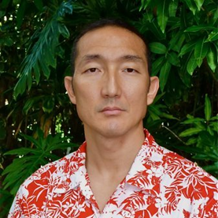
Gregg Nakano
LISD Fellow
Gregg Nakano is a Naval Academy graduate with a BS in Political Science, and served as a Marine officer during the first Gulf War and Los Angeles riots. After military service, Gregg studied Mandarin (Fudan University) and Farsi (University of Tehran), before earning a Master’s degree in Security Studies from the Fletcher School. As a civil-military coordinator for USAID’s Office of Foreign Disaster Assistance, Gregg helped provide humanitarian assistance in emergencies around the world to include the Jenin refugee camps, post-invasion Iraq, the 2004 Indonesian tsunami, and the Bam Iran earthquake. Between disaster responses, he created the Joint Humanitarian Operations Course and the security training components for the interagency Iraq DART. His passion for empowering the next generation of leaders includes expanding Tufts University’s ALLIES civil-military education program, supporting the development of DoD’s Medical Stability Operations and Veterinarian Support to Stability Operations courses, as well as helping create the Organization for Security and Cooperation in Europe (OSCE) patrolling course for Afghan border police in Tajikistan.
Through his overseas experiences in conflicts and disasters, Gregg became interested in climate change, water and sanitation as key determinants for political stability. After earning a Master’s in Geoscience from the University of Hawaii, Gregg began working with KALGOV (Kwajalein Atoll Government), Indo-PACOM, United States Coast Guard Academy, and Tufts University to create Pacific ALLIES, an experiential service-learning program to help students, cadets and midshipmen understand the climate change impacts on national security by transforming Kwajalein Atoll into a living sustainability laboratory. The final goal of these efforts is to formally establish KASL (Kwajalein Atoll Sustainability Laboratory), which will hopefully empower next generation leaders to protect, sustainably manage and restore ecosystems carrying capacity in the face of existential climate change threats.
